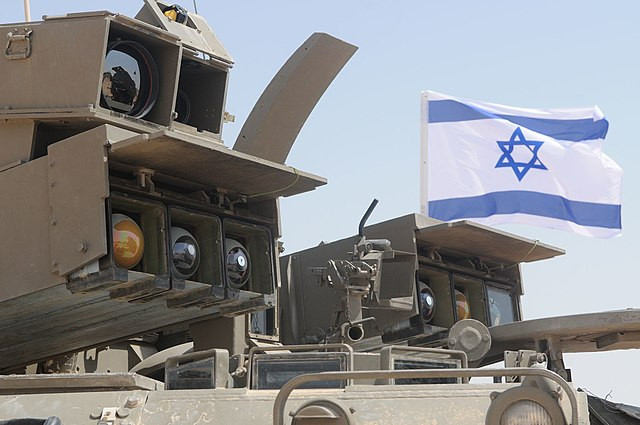Lebanon's health ministry has reported that at least 356 people were killed and more than 1,240 wounded on Monday, as Israeli airstrikes intensified across the country. The strikes, which primarily targeted Hezbollah positions in southern and eastern Lebanon, marked one of the deadliest days in the ongoing conflict between Israel and the Iran-backed militant group. Among the dead were 24 children and 42 women, adding to the growing humanitarian toll of the violence.
The airstrikes are part of Israel's wider military response to sustained rocket fire from Hezbollah, which has escalated in recent months as the militant group has shown its solidarity with Hamas, another adversary of Israel. Rear Adm. Daniel Hagari, Israel's military spokesman, stated that the Israeli Air Force had hit 1,300 Hezbollah targets, including rockets, missiles, and drones hidden in civilian areas. "Hezbollah has turned southern Lebanon into a war zone," Hagari said during a press conference, where he presented photos of weapons allegedly stored in private homes.
The scale of destruction has been staggering, with the death toll surpassing that of the devastating 2020 Beirut port explosion, which killed over 200 people. As Israeli airstrikes expanded to the Bekaa Valley and Beirut's southern suburbs, international concerns about the conflict's potential to ignite a wider regional war have deepened. The United States, Israel's key ally, has called for efforts to de-escalate the situation, with President Joe Biden telling reporters he is working to "end the war in Gaza" and return displaced people to their homes in northern Israel.
Lebanon's leadership has condemned the strikes, while Hezbollah has vowed to continue its fight. The militant group, which is estimated to possess around 150,000 rockets and missiles, remains a formidable threat to Israel. Israeli Defense Minister Yoav Gallant praised the air campaign, calling it "extremely impressive" and claiming that tens of thousands of Hezbollah rockets had been destroyed. "What Hezbollah has built over a period of 20 years... is being destroyed," Gallant said, underscoring the significance of the operation.
Despite the military successes claimed by Israel, the situation in Lebanon is dire. Tens of thousands of civilians have been displaced, with many fleeing to northern Lebanon as strikes target Hezbollah strongholds. Lebanon's government has urged the United Nations and international powers to intervene to prevent further escalation. In a statement, Lebanon's foreign ministry called for "immediate" action from the United Nations Security Council to stop the "dangerous Israeli escalation."
The conflict has drawn in responses from regional players, with Turkey and Egypt both expressing alarm over the situation. Turkey's foreign ministry accused Israel of seeking to drag the entire region into chaos, while Egypt called for international powers to step in to halt the violence. Iraq, meanwhile, is seeking an urgent meeting of Arab nations at the United Nations General Assembly, which is currently convening in New York.
Israel, however, has defended its actions, stating that Hezbollah's refusal to implement United Nations Resolution 1701, which required the group to move its forces 30 kilometers from the Israeli border, has left Israel with little choice but to respond militarily. Israeli Foreign Minister Israel Katz has urged the UN to enforce the resolution and implement sanctions on Iran, which he described as the "mastermind" behind Hezbollah's actions.
The United States, responding to the rising tensions, has announced the deployment of additional troops to the Middle East. Pentagon press secretary Major General Pat Ryder confirmed the move, though he provided no details on the number of troops or their specific mission. The U.S. currently has around 40,000 troops stationed in the region, and the additional forces are meant to address the increasing risk of a larger regional conflict as hostilities between Israel and Hezbollah escalate.
The Israeli military has made it clear that it is preparing for the "next phases" of its operation in Lebanon, though it has not provided specifics. Military chief Lt. Gen. Herzi Halevi stated that Israel's actions thus far have targeted Hezbollah's infrastructure, which has been built up over the past two decades. "We are striking targets and preparing for the next phases," Halevi said, adding that Israel's ultimate goal is to secure its northern border and allow displaced Israelis to return to their homes.




